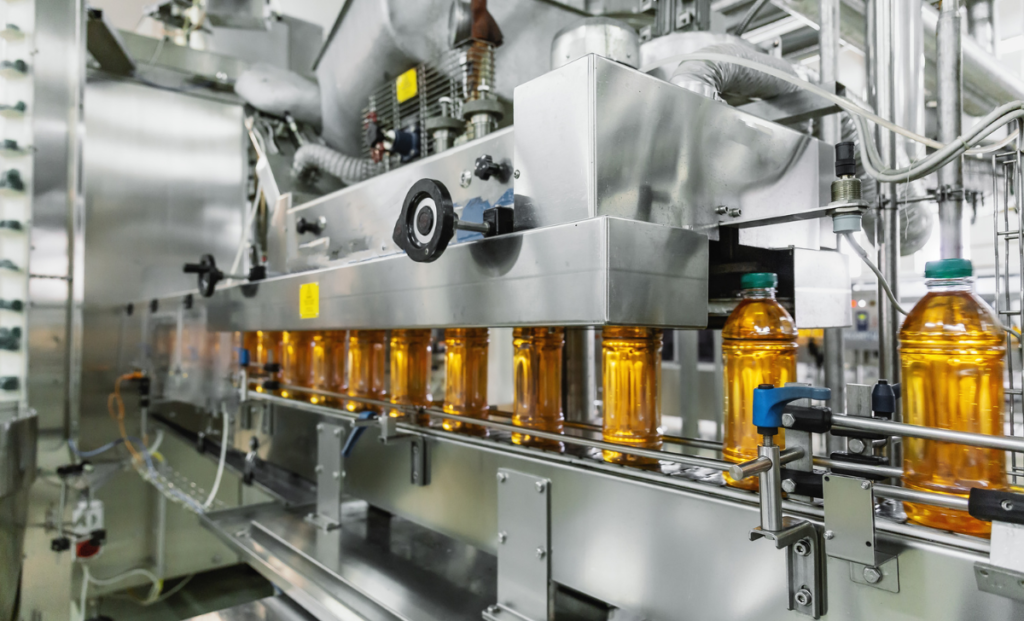Amplify Your Leadership Voice Worldwide
Join 7,000+ industry leaders sharing insights with millions of professionals globally
Email us: corporate@theceo.in Call Now: 011-4121-9292
Copyright © 2024 The CEO Magazine. All Right Reserved.












Join 7,000+ industry leaders sharing insights with millions of professionals globally

Production in specialized sectors is a fascinating area that deserves attention. As I explore this topic, you’ll discover how industry-specific manufacturing not only enhances efficiency but also fosters innovation across various fields. Each sector has its own distinct challenges and advantages, impacting everything from workforce safety to sustainability practices. In this post, I aim to provide you with an insightful overview of these sectors, helping you understand the significance of specialized production in today’s marketplace.
To genuinely grasp the complexities of manufacturing, it is important to explore its various sectors. These sectors encompass a wide array of industries, each specializing in distinct products and processes. From electronics to textiles, the manufacturing landscape is rich with specialization, driving efficiency and innovation. Understanding these sectors not only illuminates their unique challenges and opportunities but also highlights how they contribute to the global economy.
With the vast array of industries within manufacturing, defining specialized sectors is key. Each sector focuses on specific materials or processes, resulting in optimized production efficiencies. This specialization not only enhances the quality of products but also fosters innovation, making it central to economic growth and sustainability in today’s fast-paced market.
For many, specialized production is defined by its focus, efficiency, and adaptability. These characteristics enable manufacturers to tailor processes and outputs to meet precise market demands, ensuring high quality while minimizing waste.
In fact, key characteristics of specialized production include highly focused processes, enabling professionals to hone their skills in specific areas, and customized machinery designed for particular tasks. Furthermore, specialized production typically involves adaptive supply chains that cater to unique requirements, enhancing both flexibility and efficiency. This approach not only leads to cost savings but also positions businesses to respond swiftly to market changes, thereby ensuring competitive advantage in their respective sectors.
One of the most dynamic sectors within manufacturing is automotive manufacturing, where precision engineering and innovative technology converge. This industry is not only a pillar of global economies but also a leader in implementing sustainability practices and advancements in production techniques. I have seen how automotive companies strive to enhance efficiency and quality while adapting to market trends and consumer preferences, making it a continuously evolving landscape.
Manufacturing within the automotive sector has undergone a remarkable evolution, focusing on automation, robotics, and the adoption of digital technologies. I often observe that processes such as lean manufacturing and just-in-time inventory management have significantly improved efficiency and reduced waste. Additionally, innovations like 3D printing and connected manufacturing are revolutionizing production lines, enabling companies to respond swiftly to market demands and enhance vehicle customization capabilities.
One of the significant challenges facing automotive manufacturing today is the shift towards electric vehicles (EVs) and the need for adaptation in production practices. Companies must navigate stringent regulations and increased competition while also addressing supply chain disruptions. However, this transition presents substantial opportunities for growth.
Even amidst challenges like rising material costs and labor shortages, the shift to electric vehicles opens doors for new markets and innovations. Companies that invest in advanced technologies can enhance their competitive edge while also contributing to sustainability goals. I believe that the focus on renewable energy sources and the development of batteries and charging infrastructure not only aligns with consumer demands but also positions you strategically for future growth in the automotive sector.
Some of the most technologically advanced production processes can be found in aerospace manufacturing. This sector is dedicated to building aircraft, spacecraft, and related components, requiring precision engineering and a strong emphasis on safety. The complexity of aircraft design demands stringent methods and materials to ensure a reliable performance, elevating aerospace to a pinnacle of specialized manufacturing.
Behind the scenes of aerospace manufacturing lies a detailed framework of regulations and standards that guarantees safety and quality. Compliance with organizations like the FAA and EASA is non-negotiable, ensuring that production processes adhere to rigorous specifications. These standards help safeguard the lives of passengers and maintain the integrity of the aviation industry.
Above all, the rapidly evolving technologies in aircraft production are reshaping the industry. Innovations such as 3D printing and advanced composite materials are not only enhancing design flexibility but also contributing to significant weight reductions in aircraft. These advancements lead to improved fuel efficiency, which ultimately bolsters sustainability in the aerospace sector.
A torrent of technological advances is making waves in aircraft production. The rise of automation and robotics is increasing efficiency and precision, allowing for complex manufacturing processes to be completed faster and with fewer errors. Furthermore, the implementation of digital twins allows for real-time monitoring and optimization of production lines, resulting in reduced costs and enhanced quality measures. In addition, leveraging materials like carbon fiber reinforced polymers yields lightweight structures without compromising strength, playing a pivotal role in the aerospace sector’s ongoing push toward greener, more efficient flight solutions.
Once again, the electronics manufacturing sector showcases the tremendous innovation and precision that drives modern technology. This industry is integral to producing a wide array of devices, from smartphones to intricate circuit boards, that are necessary for today’s digital landscape. By utilizing advanced machinery and robust supply chains, manufacturers can swiftly adapt to market demand and technological advancements, ensuring they remain at the forefront of a rapidly evolving sector.
Any disruption in the electronics supply chain can significantly impact production timelines and costs. Factors such as component shortages, geopolitical tensions, and logistics challenges can create hurdles for manufacturers. Keeping a keen eye on emerging risks and opportunities within the supply chain is necessary for maintaining operational efficiency and customer satisfaction.
Dynamics in the electronics manufacturing landscape are continually reshaped by advancements in materials and production techniques. As you engage with this sector, you’ll find that shifts toward sustainable production methods and the integration of AI and automation are paving new paths for efficiency and innovation.
Supply trends indicate a growing emphasis on sustainability and circular economy practices, driving manufacturers to rethink their production processes. Additionally, the integration of AI and machine learning is enhancing quality control and reducing waste throughout the production cycle. With the ever-present threat of geopolitical challenges affecting the supply chain, flexibility and adaptability are key themes for future electronics manufacturing. As we move forward, these changes will define the sector’s approach to delivering high-quality electronic products more efficiently.
Unlike traditional manufacturing sectors, pharmaceuticals and biotech manufacturing are defined by their focus on improving human health through the development of life-saving drugs and innovative treatments. This industry is characterized by a complex supply chain, stringent regulatory environments, and the need for substantial investments in technology and research. As I investigate into this sector, I find that the intersection of science, technology, and production practices creates a dynamic landscape that plays a vital role in society.
With the pharmaceutical and biotech sectors subject to rigorous regulations, compliance and quality control become paramount. I see that manufacturers must adhere to Good Manufacturing Practices (GMP) and conduct thorough testing to ensure product safety and efficacy. This emphasis on quality not only prevents costly recalls but also helps to build trust with healthcare providers and patients alike.
To remain competitive, pharmaceutical and biotech companies invest heavily in research and development (R&D), which directly influences their production capabilities and the innovative products they bring to market. This commitment to R&D enhances drug discovery processes and accelerates the delivery of novel therapeutics that can address unmet medical needs.
The impact of R&D in pharmaceuticals and biotech is profound, as it drives the discovery of new treatments and potential cures for various diseases. Research efforts lead to advancements in genomics, personalized medicine, and biologics, which have revolutionized patient care. However, the high costs associated with R&D can pose challenges, sometimes resulting in limited access to innovative therapies. It’s vital to recognize that while the pursuit of scientific breakthroughs contributes positively to healthcare, the lengthy development timelines and regulatory hurdles can also delay patient access to these critical advancements.
Many sectors within the food and beverage manufacturing industry are pivotal in meeting the evolving demands of consumers. From snacks to beverages, this sector requires specialized processes to ensure quality and safety, while also keeping up with innovation and sustainability trends. The intricate nature of food production not only adds complexity but also presents unique challenges that must be navigated for success.
The food and beverage sector is governed by stringent regulations and safety standards to protect consumers. Compliance with organizations like the FDA or USDA is non-negotiable, as they enforce guidelines to ensure that food products are safe for consumption. As manufacturers, we must prioritize traceability, transparency, and stringent quality assurance processes in our production chains.
Beside safety and regulations, understanding market trends and consumer preferences is vital in the food and beverage sector. Consumers are increasingly leaning towards healthier options, sustainability, and ethical sourcing in their purchasing decisions. Staying attuned to these trends not only enhances product appeal but also positions businesses strategically in a highly competitive landscape.
Food preferences are rapidly changing, influenced by factors such as health consciousness and environmental concerns. As a result, I see a significant shift towards plant-based alternatives, clean labels, and locally sourced ingredients. Companies that adapt to these demands may see growth as consumers actively seek out products that align with their evolving values. Furthermore, the rise of online shopping has revolutionized how we reach our audience, emphasizing the need for robust digital marketing strategies in today’s market landscape.
Ultimately, my exploration of industry-specific manufacturing sectors has illuminated the intricate dynamics of specialized production. By delving into various fields, I have come to appreciate how tailored approaches drive efficiency and innovation. As you navigate this landscape, understanding the unique challenges and opportunities within these sectors will empower you to make informed decisions and foster growth in your endeavors.
A: Industry-specific manufacturing sectors refer to specialized categories of production that focus on particular industries. These sectors are tailored to meet the unique needs, standards, and technologies associated with various fields such as aerospace, automotive, pharmaceuticals, electronics, and food and beverage. Each sector employs specific processes, materials, and equipment designed to optimize efficiency, quality, and compliance with industry regulations.
A: Specialized production processes vary across different manufacturing sectors. For instance, in the aerospace industry, processes like additive manufacturing (3D printing) and precision machining are commonly used to create lightweight and complex components. In the automotive sector, lean manufacturing and just-in-time (JIT) production techniques help optimize inventory and reduce waste. Meanwhile, the pharmaceutical industry often employs clean room manufacturing and batch processing to ensure product safety and efficacy. Each process is adapted to the specific demands of the sector, guaranteeing high standards of quality and consistency.
A: Industry-specific manufacturing sectors play a significant role in economic growth by fostering innovation, creating jobs, and driving exports. These sectors often engage in research and development to improve processes and develop new technologies, which can lead to the creation of higher-value products. Additionally, as these industries expand, they generate employment opportunities both directly within the manufacturing facilities and indirectly through the supply chain. Furthermore, by producing specialized goods, these sectors can contribute to a country’s trade balance, encouraging foreign investment and boosting overall economic performance.
Join industry leaders who have shared their insights with millions of professionals globally.

Join our mailing list to receive the latest news and updates from our team.